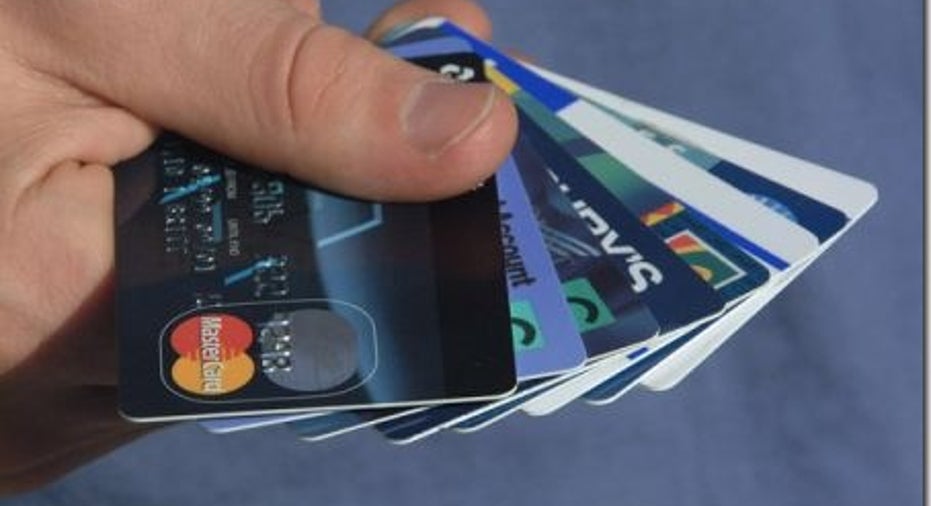Rebuilding Credit Doesn't Mean Going Back Into Debt

Dear To Her Credit,
My husband and I have been advised to open a secured credit card to rebuild our FICO score. He has no credit score and mine is in the mid-to-high 600s. We have our credit record almost crystal clear from any negative marks.
We need to improve our scores, however, so we can buy a house in the next few years. What are your suggestions? Should we get a secured loan, card or both? Should it be joint or one in each name? Should we open them at different times or would opening them close together be OK?
We have worked so hard to pay down our debt because of financial disaster due to my husband being out of work for nine months in 2002. We try not to owe anything other than car and house loans. Now, we have to get into unnecessary debt to appease the FICO gods. We have learned to live within our means and I feel we are being punished for it. I'm FICO flustered!
- Megan
Dear Megan,
Don't be flustered! You're actually in good financial shape, thanks to your hard work. It won't take much now for you and your husband to improve your scores dramatically so they are in the "excellent" range when you need them.
You may be overthinking the credit rebuilding process, however. It's not that complicated. It will make little difference in most cases whether your cards are in one or both of your names, for example. All your future mortgage bank wants is customers who do what they say they are going to do: pay back money they borrow on the terms of the contract. To convince them you're one of those dependable customers, you must show a track record of doing just that with smaller debts.
If you want to get two cards, go ahead and apply for both of them. The sooner you start building a record on both cards, the better. Sure, you might get a credit ding of seven points or so for each new card. That's temporary. Think about the long-term benefit, and don't worry about every little point in the meantime. With your higher credit score, you may also want to try to apply for a no-frills unsecured card first. Just don't apply for several cards at once -- space the applications out over several months to prevent multiple dings to your credit.
Your husband may have a tougher time getting approved for a regular unsecured credit card with his nonexistent credit, however. So he has three choices. He may:
- Apply for a secured card in his own name.
- Apply jointly on a credit card with you.
- Be added as an authorized user to a card that is only in your name.
There's no need to go into debt to build up a credit record. You've been using a debit card. Get a credit card or two and start putting a few purchases on it instead. The secret to not getting into debt with a credit card is to convince yourself that the money is spent the moment you put it on the card, just as if you were still using your debit card. That way, when the statement comes, there's no question about whether you should pay it off. The money is gone, your net worth changed when you spent the money and paying the card is really just transferring money from one of your accounts to another. If you make a larger purchase, nothing is stopping you from sending a payment immediately, so you don't have a whopper of a bill at the end of the month.
Check your credit card balance regularly, perhaps even on your phone when you're about to make a purchase, to help you keep it in line. I am shocked sometimes at how $20 here and $30 there can add up so quickly on my credit card statement!
Besides learning to think of money as spent when you use your credit card, you should develop a healthy aversion to paying one penny of interest on consumer debt. Carrying a balance forward won't raise your credit score by one point. In fact, paying interest makes it harder for you to reach other goals, such as saving for a home down payment.
You must already have some credit history if you have a car loan. An excellent goal would be to pay that off before you buy a home. Paying off the car loan will improve the ratio of your debt to income, making it easier for you to qualify for and keep paying your mortgage. Once your car is paid off, you can start an account to save for your next car, so you never have car payments again. One of the biggest secrets to a comfortable financial life is to pay your first car off as quickly as possible and then never make car payments again.
Again, you don't need to go into debt to appease the FICO gods. In fact, you shouldn't. You need only to demonstrate, to yourselves and to future creditors, you can be trusted with credit. You are already a great example of how people can learn to manage their money and live within their means. Take the next step -- applying for credit -- without fear. You can do it!



















